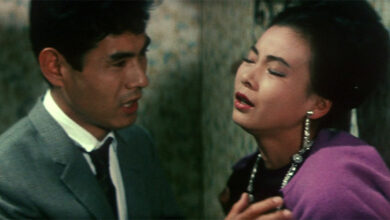Crash (1996)

🎬 Crash (1996) – Where pleasure crashes into destruction, and desire burns within twisted wreckage.
David Cronenberg redefined provocative cinema with Crash—a film that not only dares to disturb but also confronts our deepest obsessions with the body, sexuality, and trauma. There is no love here, no comfort—only the sound of grinding metal, bleeding skin, and cold stares laced with hunger.

James Spader embodies disconnection with haunting precision. His character is drawn into a shadowy cult-like group who find sexual stimulation in car crashes—where every scar is erotic, every collision a strange and sacred ritual. Deborah Kara Unger is like a human sculpture of steel and ice—beautiful, aloof, and disturbingly magnetic, embodying a mechanized sensuality where flesh merges with machine.
There is no sweeping score to manipulate emotion. Instead, the film breathes with the sounds of engines, broken glass, panting, and eerie silence. Cronenberg seduces the viewer into a frozen psychological landscape—unsettling and impossible to look away from. The film does not moralize or explain—it simply exposes a disturbing truth: that human desire can exist far outside what we call normal.

Crash is not for the masses, nor does it try to be. But for those who step into its world, it’s like witnessing a wreck in slow motion—horrifying, mesmerizing, and impossible to ignore. It is an extreme yet strangely poetic work of cinema—bold, deviant, and unforgettable.
It forces us to look inward—at the fractures within ourselves that might be more dangerous than any impact from outside. In Cronenberg’s world, desire doesn’t need justification—just the right pressure to ignite. And Crash is that cold flame, burning through every boundary we thought was safe.





